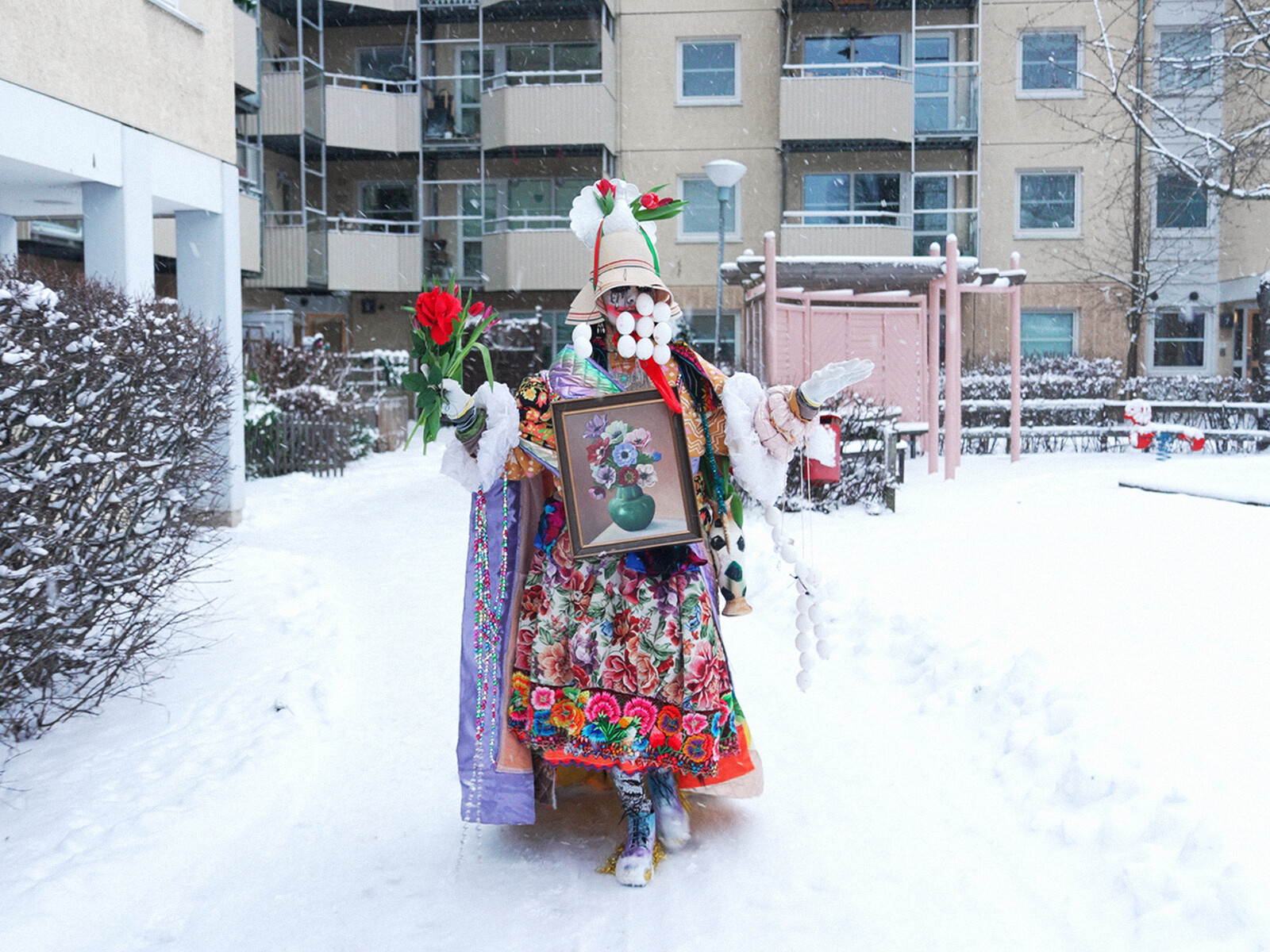Cosmonación
April 20–November 24, 2024
Magazzino n. 42, Marina Militare, Arsenale di Venezia
Fondamenta Case Nuove 2738/C (near Campo della Celestia)
Venice
Italy
Artist: Valeria Montti Colque
Curator: Andrea Pacheco González
Producer: Carola Chacón Zuloaga
Commissioner: Florencia Loewenthal, Ministry of Culture, Arts and Heritage—Ministry of Foreign Affairs, Government of Chile
With the co-production of Bonniers Konsthall, Sweden
Venue: Magazzino n. 42, Marina Militare, Arsenale di Venezia, Fondamenta Case Nuove 2738/C (near Campo della Celestia)
Pre-opening days: April 17–19, 2024
Opening ceremony: April 19, 6:30pm
“Valeria Montti Colque’s artistic proposal brings simultaneously together a ritual and political space, allowing us to connect to the immensity of a forest or a mountain through the strength of a foreign community, right in the middle of a city.”
Andrea Pacheco González (Curator)
Cosmonación is an invitation to reflect upon concepts of nationhood, exile, migration and diaspora. Valeria Montti Colque’s project connects the audience with the contemporary debates around the tension between questions of “Who I am” and “Where I am”, in the intricate process of “territorializing life” (Kusikidi, 2020) within a diverse plethora of cultural identities. The term “Cosmonation” is borrowed from the anthropologist Michel S. Laguerre, who affirms that diasporic communities do not sever relations with their places of origin but remain attached to their ancestral lands through different actions, materials, and spiritual practices. In this way, they inhabit an extended understanding of self within a “multisite nation”, a cosmonation that unifies geographically distant territories.
Cosmonación interrupts the notion of singular national representation at an event such as that of the Venice Biennale 2024—Montti Colque is the first Chilean artist, who was not born in Chile, to participate in its pavilion—and proposes to enter a cosmonational space where the visitor will find “a set of interrelated sites” (Laguerre, 2015). These diverse places and identities are connected through Mamita Montaña (Mother Mountain), the centerpiece of the pavilion. An installation of accumulative nature, measuring more than five meters high, is made up of carpets printed with various media including collages, watercolors, drawings on paper, printed textiles, small ceramic pieces, and photographs. The installation is crowned by a ceramic head. Mamita Montaña suggests a symbolic shelter for the exiled and post-exile people, refugees, and inhabitants of this other “imagined community” (Anderson, 1983) which is the nation outside the nation where each member of the diaspora lives. Orbiting around the colossal sculptural installation, the Chilean Pavilion Cosmonación will further present new works by Montti Colque—a procession of five ceramic figures representing the likes of deities, or mythological beings. Furthermore, an additional textile piece and a two-channel video projection will immerse the visitors into a landscape that symbolizes a border where cultures confront, dissolve, fuse, survive, and grow up with more power despite being out of the ancestral home.
Valeria Montti Colque was born in Stockholm, Sweden, in 1978, two years after her parents fled the Chilean military dictatorship and settled in the city as part of the Swedish institutional commitment to the overthrown government of Salvador Allende. In her works, she invites us to approach a territory where visual, symbolic, and material elements of all the nations she inhabits are interrelated. We are not only talking about Chile and Sweden, but her work also invokes other communities, such as the Aymara, through her familiar links with the Andean cosmovision, or the African ancestry of her descendants. Her actions, drawings, murals, sculptures or installations, abound in non-identifiable beings, collage-bodies, mestizo subjectivities carrying out animated objects, crossing coloring landscapes, in constant transit, always going somewhere. Collaboration as a primary method is fundamental to Valeria’s practice as other artists, family, and friends are an essential part of the creation of her artistic world.
Ministry of Culture, Arts and Heritage—Ministry of Foreign Affairs, Government of Chile
With the co-production of Bonniers Konsthall, Sweden.
For international and Italian press
International and Italian: Teresa Sartore, teresa [at] lightboxgroup.net
Italian: Silvia Baldereschi, silvia [at] lightboxgroup.net






